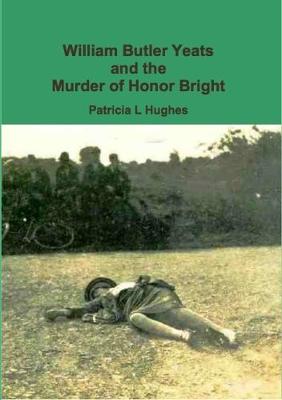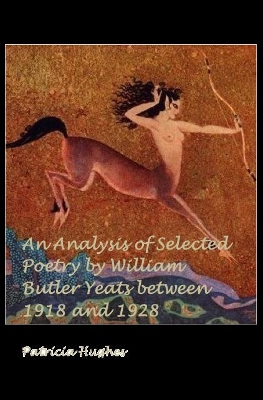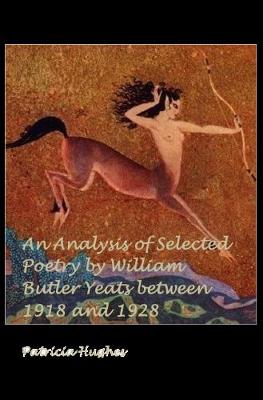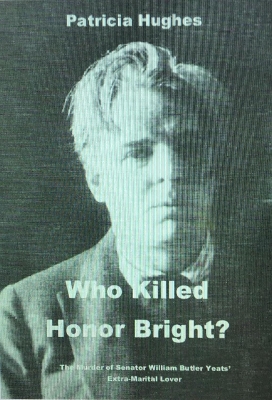William Butler Yeats and Honor Bright
6 primary works
Book 1
Kevin, an illegitimate orphan raised in Dublin's slums, found out his real name from his birth certificate. His mother, murdered when he was four, was called 'Honor Bright'. Dubliners called her a famous prostitute, but that was obviously untrue.
In 2006 I saw a photograph of William Butler Yeats. He had the same features as Kevin.
In 2006 I saw a photograph of William Butler Yeats. He had the same features as Kevin.
Book 2
An Analysis of Selected Poetry by William Butler Yeats Between 1918 and 1928
by Patricia L. Hughes
Published 16 March 2014
A re-analysis of W. B. Yeats's most difficult poetry, showing how it was edited by his wife to remove all traces of his lover, Lily O'Neill, and his first son. This book clearly shows that he was not writing about his wife, George, or about Maud Gnne MacBride,or Iseult Gonne Stuart.
Book 2
An Analysis of Selected Poetry of William Butler Yeats Between 1919 and 1928
by Patricia Hughes
Published 30 April 2012
A re-analysis of W. B. Yeats's most difficult poetry, showing how it was edited by his wife to remove all traces of his Catholic lover, Lily O'Neill, and an illegitimate son. This book clearly shows that he was not writing about his wife George, or about Maud or Iseult Gonne. Find out how Yeats's wife, the Irish Free State Minister of Justice and the newly-established Garda Siochana manipulated him into denying all knowledge of his 'most exalted lady' and his first-born son.
Book 3
In 2006 in the Guardian there was a photo of William Butler Yeats receiving the Nobel Prize, and he had exactly the same features as my father, an illegitimate child whose mother had been murdered. Her pseudonym was Honor Bright. The murder trial was held seven months later, and the police superintendent and magistrate, the alleged assassins, were both acquitted - although the public outcry made them both leave the country fast. During the trial G-Force detectives, led by David Neligan, spread rumours that Honor Bright was a prostitute. But we knew it was a lie.
Book 4
Read this talk about controversial events in William Butler Yeats's life, such as his sudden heart troubles and depression from June 1925, his notorious Divorce Bill speech, the riots over Sean O'Casey's production of The Plough and the Stars and Yeats's later obsession with Purgatory. His wife George was his amanuensis; find out about why she altered details in his works, and hoarding his papers after his death. She insisted that Yeats's alter egos and "masks" were psychic creations of a genius; but they were real disguises that she had to suppress, to hide her own role in the murder of Yeats's extra-marital lover.
My own family history is connected to these events. They show why my grandmother was murdered, who was responsible, and how the truth was concealed. You can find out why my father had a different name in childhood, and why the Garda Siochana strongly urged him to not enquire into his mother's life. It shows why my sisters and I could see from her photograph that she was never a prostitute, but why the jury at the trial of her assassins had such a different point of view.
My own family history is connected to these events. They show why my grandmother was murdered, who was responsible, and how the truth was concealed. You can find out why my father had a different name in childhood, and why the Garda Siochana strongly urged him to not enquire into his mother's life. It shows why my sisters and I could see from her photograph that she was never a prostitute, but why the jury at the trial of her assassins had such a different point of view.
Book 4
This book consists of revised extracts from 'Who Killed Honor Bright?' to make the story easier to understand. W B Yeats married to George in September 1817, and met Lily, in March 1818. She bore his first son, and Yeats treated him as his heir. George suffered jealousy and a loss of pride at the thought of losing her status as a senator's wife, as well as her son's inheritance. She told the Head of the new Free State that Lily was a spy, so he murdered her. Yeats was forced to cover up the murder for political reasons, and also to abandon his first son. The emotional impact was immense. He had sudden "heart trouble" and became depressive. His subsequent life was marked by fear of Purgatory, halfway between Heaven and Hell according to the Catholic faith; he had negligently allowed evil during his lifetime, even though Lily's murder and the loss of his son were not his fault.




